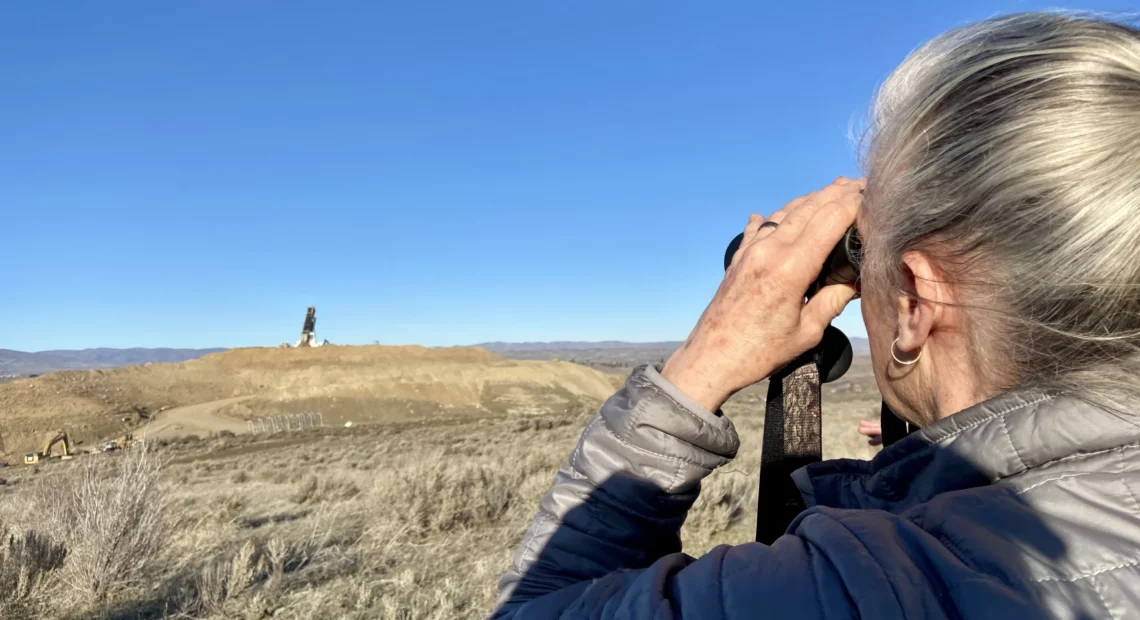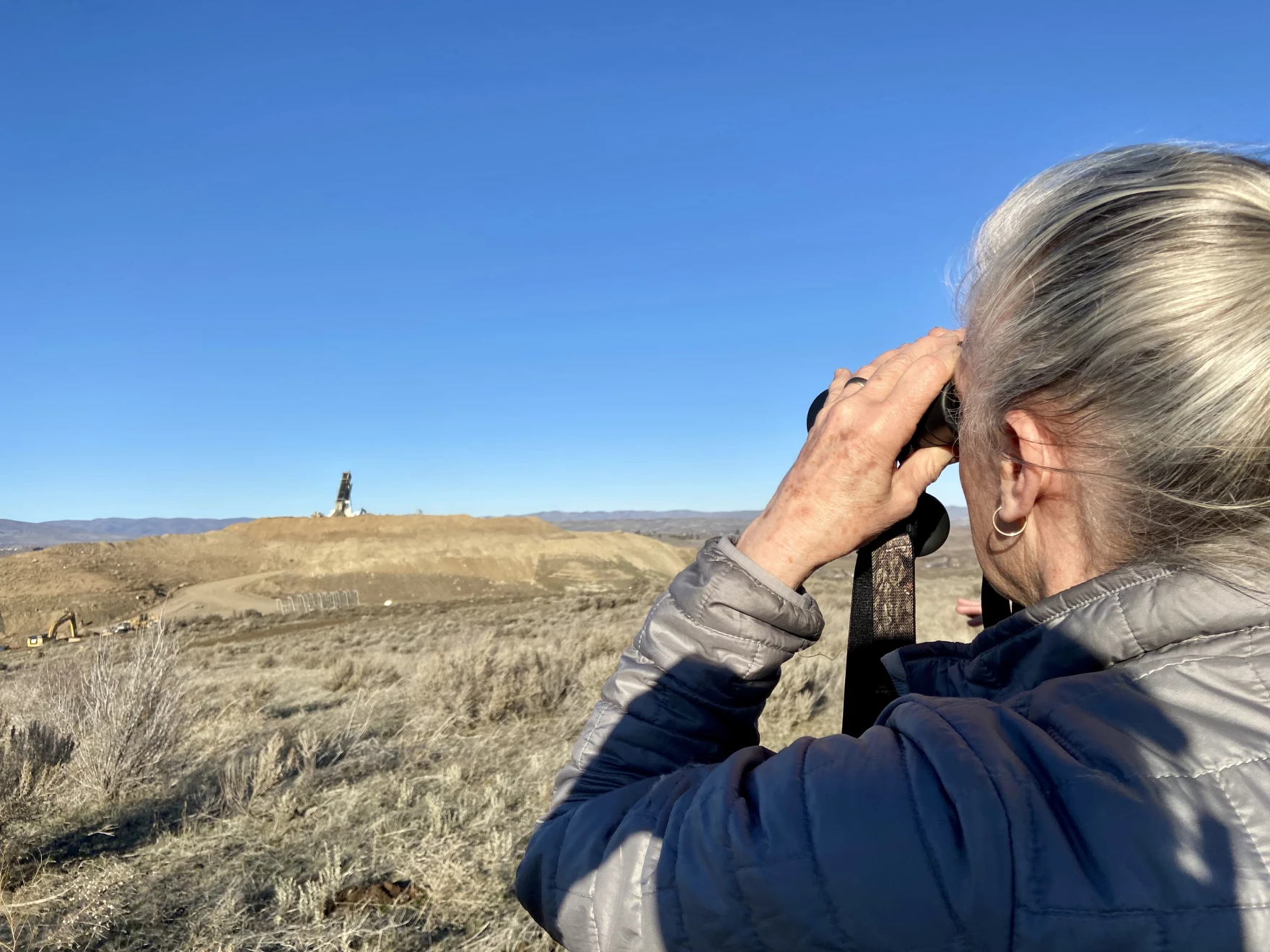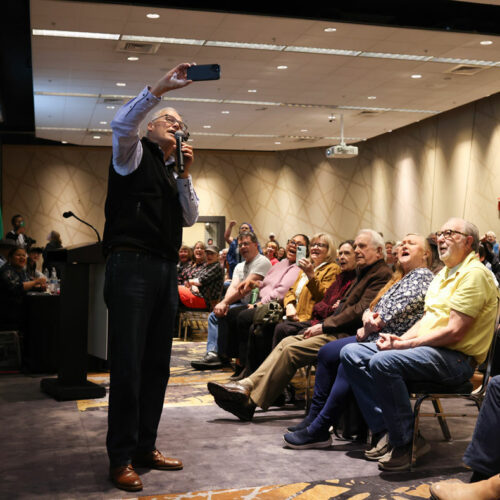
Washington state bill could strengthen regulations, increase fines for ‘troublesome’ landfills
Listen
(Runtime 1:04)
Read
Washington state lawmakers are considering a bill that could change how landfills are regulated and fined in the state. The bill comes after two private landfills in Yakima County caught fire, concerning people who live nearby.
Currently, local health districts permit landfills in their regions. However, the bill would mean the state Department of Ecology must review and approve permits for solid waste landfills. It also would also give state and local regulators more teeth to issue fines.
“ We have quite a few landfills that are out of compliance. There are a couple actually in Yakima that are on fire and have been for over a year. And a lot of that is because of sort of a lack of ability to follow through on pulling permits,” said bill sponsor Rep. Davina Duerr, D-Bothell, at a public hearing in January.
At another public hearing Thursday on substitute House Bill 1154, some landfill operators worried about having two separate sets of regulators. Carolyn Moulton, with Lautenbach Recycling, raised concerns but said she neither supported nor opposed the bill. She said even though the bill is in response to “a handful of troublesome landfills,” it could burden others in the industry.
“ We own and manage four recycling facilities, a composting facility and a municipal transfer station. Having two regulatory agencies with not strictly defined and potentially conflicting interpretations of the same rules is problematic for solid waste handling permit holders,” said Moulton.
But, advocates for people who live near the landfill said many operators shouldn’t worry.
“If you’re a landfill or solid waste operator that’s doing things in a great way, then this will not impact you,” said Heather Trim, with Zero Waste Washington.
In addition, this bill would make landfill operations consistent across Washington, Trim said.
For years, neighbors have raised concerns about underground fires, PFAs contamination and permitting issues at two private landfills in Yakima County. They said a bill like this could prevent these problems.
“ For decades, a couple of privately owned landfills have operated have operated in this community and they didn’t have liners or drain or collection systems, and they were accepting material from all over the state, including out of Canada,” said Scott Cave, a consultant for the advocacy group Friends of Rocky Top, which has been fighting DTG’s Rocky Top Environmental landfill for years.
Friends of Rocky Top helped bring awareness to a landfill fire and concerns about harmful chemicals leaking into the air and groundwater.
“ So these conditions occurred, in part, because there wasn’t enough regulatory (reaction),” Cave said.
The bill allows regulators to issue up to a $5,000 fine per day if a landfill doesn’t comply with its permits. If the landfill continues operating without any fixes after 14 days, that fine can increase to $10,000 per day.
The Caton Landfill near Naches continues operating nearly 600 days after the Yakima Health Department decided not to renew its solid waste permits in 2023, said Wendy Wickersham, who lives near the Caton facility.
“ I wish this bill had been in existence decades ago,” Wickersham said. “This bill would give power to our health district, and obviously there needs to be a change.”
At the hearing, Kris Strutner, who operates the Caton Landfill, opposed the bill, saying it would create overlap and jurisdictional problems.
“ What I’d hope to see is an entity that is overseen by an independent group that’s able to make sure that we have even-handed regulation,” Strutner said.
The bill would also require local health districts to update the Department of Ecology every five years on landfill permit violations, enforcement actions and whether the issue is resolved.
Jaime Bodden, with the Washington State Association of Local Public Health Officials, said it would be important to clearly communicate and coordinate between local health districts and the Department of Ecology.
“This ability to charge penalties will help assure that landfill violations will be resolved swiftly. And for those that are more long-standing or more serious, there is a real financial incentive to come back into compliance quickly,” she said.
















